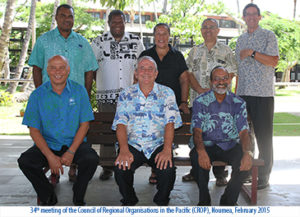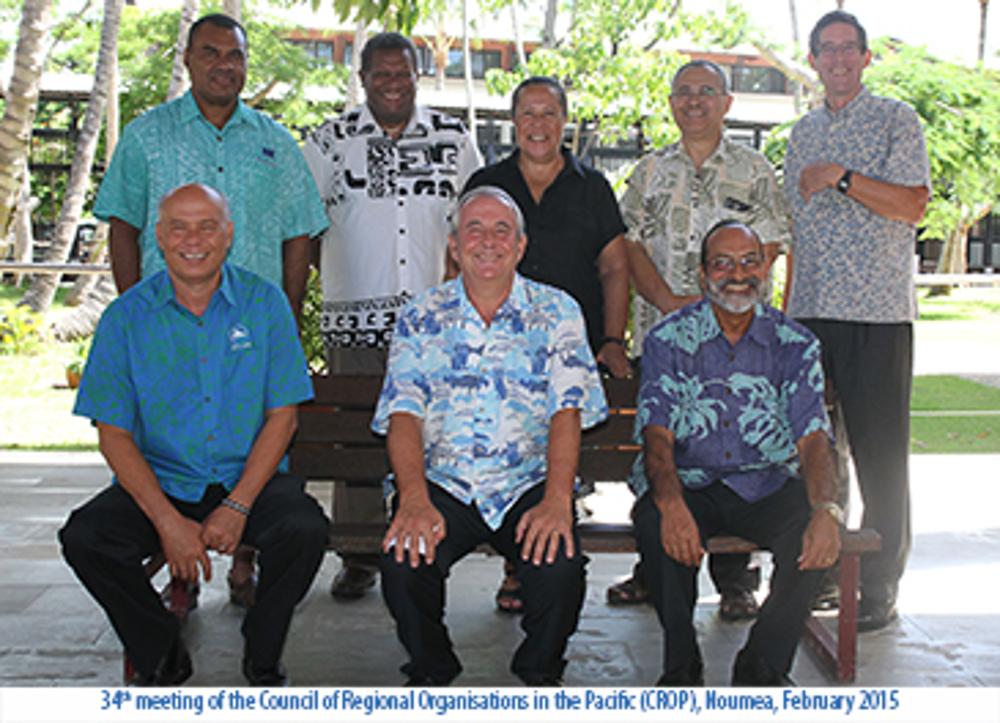 Heads of Pacific Islands regional organisations met over the past two days to strategize for a strengthened Pacific regionalism, marking an important milestone in the history of regional coordination and practice.
Heads of Pacific Islands regional organisations met over the past two days to strategize for a strengthened Pacific regionalism, marking an important milestone in the history of regional coordination and practice.
Central to discussions was the new Framework for Pacific Regionalism and the role of the Council of Regional Organisations in the Pacific (CROP), as a unifying body, in supporting Leaders of Pacific island countries to realise their vision for the region.
“The CROP system is fundamental to achieving Pacific countries’ and peoples desired development outcomes,” CROP Chair and Secretary General of the Pacific Islands Forum Secretariat (PIFS), Dame Meg Taylor, stated.
“We also need our member countries to drive the regional effort through policy coherence in their relations with each other, and with external parties. We are all ultimately accountable to our people through our countries’ leaders and we need to regularly ask ourselves, ‘is our regional effort producing results on a particular issue?’ If we don’t have a clear answer, then we need to re-think CROP’s role.”
“The Pacific people are at the heart of the Framework, it is not for Leaders and regional organisations alone,” Vice Chancellor of the University of the South Pacific (USP), Professor Rajesh Chandra, agreed. “We will all have to operate in a larger space. CROP is one of many partners in the bigger picture, and through inclusion and synergies that come from, it we can produce much better outcomes for Pacific countries,” the Vice Chancellor said.
At their meeting, CROP heads agreed on a strategy for engaging in the new regional public policy process laid out by the Framework for Pacific Regionalism.
Financing of regionalism, both by development partners and Pacific island countries and territories (PICTs), was a key discussion topic. CROP executives highlighted the need for improved alignment of regional development finance to priorities, which will require a different type of relationship between development partners, PICTs and CROP agencies.
CROP Executives agreed to a review of regional governance and financing arrangements, building on a recommendation of the 2013 Pacific Plan Review led by Sir Mekere Morauta of Papua New Guinea. “The emphasis of this review is on the collective system that underpins Pacific regionalism, not the individual agencies or actors,” SPC Director-General, Dr Colin Tukuitonga, said.
“Many of the CROP agencies have already undergone institutional governance reviews since 2013. What we’re proposing now is a next step to look at regional governance in its broadest sense, looking at members, actors and the engagement of citizens, as well as the instruments of accountability.”
Existing and emerging strategic regional issues, such as climate change, the Ocean and its resources, and non-communicable diseases were among other topics discussed, which will all require a collective effort on the part of the CROP to deliver effectively.
“Climate change is one area that we translate from the regional level across to the national and international arena. This issue is of particular significance for our Pacific communities this year as we voyage towards a new global climate agreement," Director-General of Secretariat of the Pacific Regional Environment Programme (SPREP), David Sheppard, said.
"We bring our strong experience and institutional knowledge of the UN Climate Change process to the CROP collaboration so that we're not only addressing climate change at the national level but are also working with members so the outcomes are favourable for all at the international level," Mr Sheppard said.
The 34th Meeting of the Council of Regional Organisations in the Pacific (CROP) was chaired by the Secretary General of the Pacific Islands Forum Secretariat (PIFS), Dame Meg Taylor, and hosted by the Secretariat of the Pacific Community (SPC) at its headquarters in Noumea, New Caledonia.
The regular meeting of CROP heads enables strategising on joint efforts to address regional cross-cutting issues.
The nine CROP members are PIFS, SPC, USP, SPREP, the Forum Fisheries Agency (FFA), the Pacific Aviation Safety Office (PASO), the Pacific Islands Development Programme (PIDP), Pacific Power Association (PPA) and the South Pacific Tourism Organisation (SPTO).
For more on CROP, visit
For enquiries contact [email protected]
